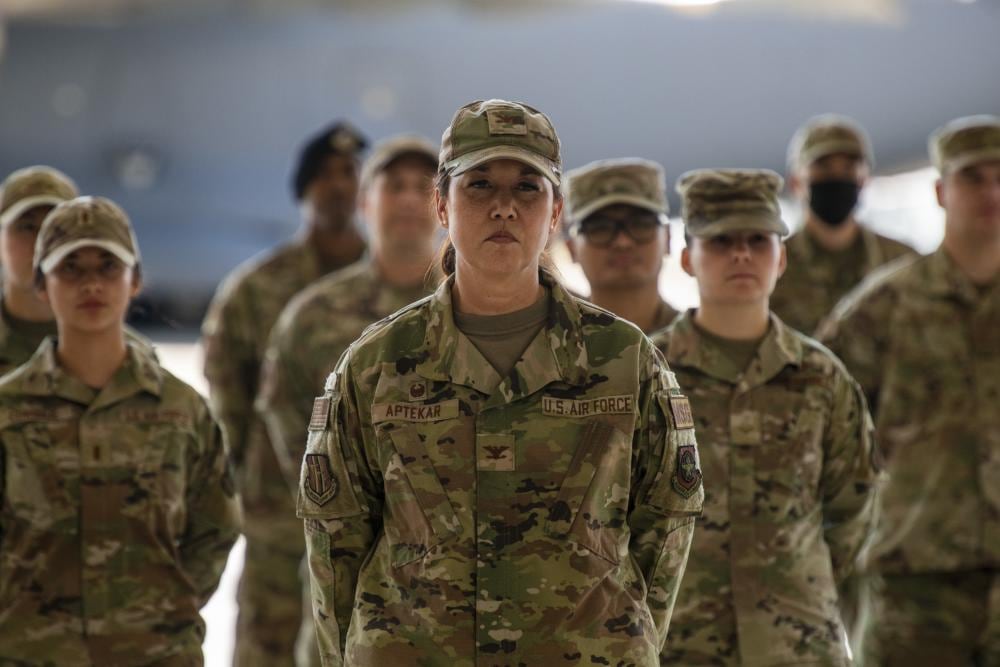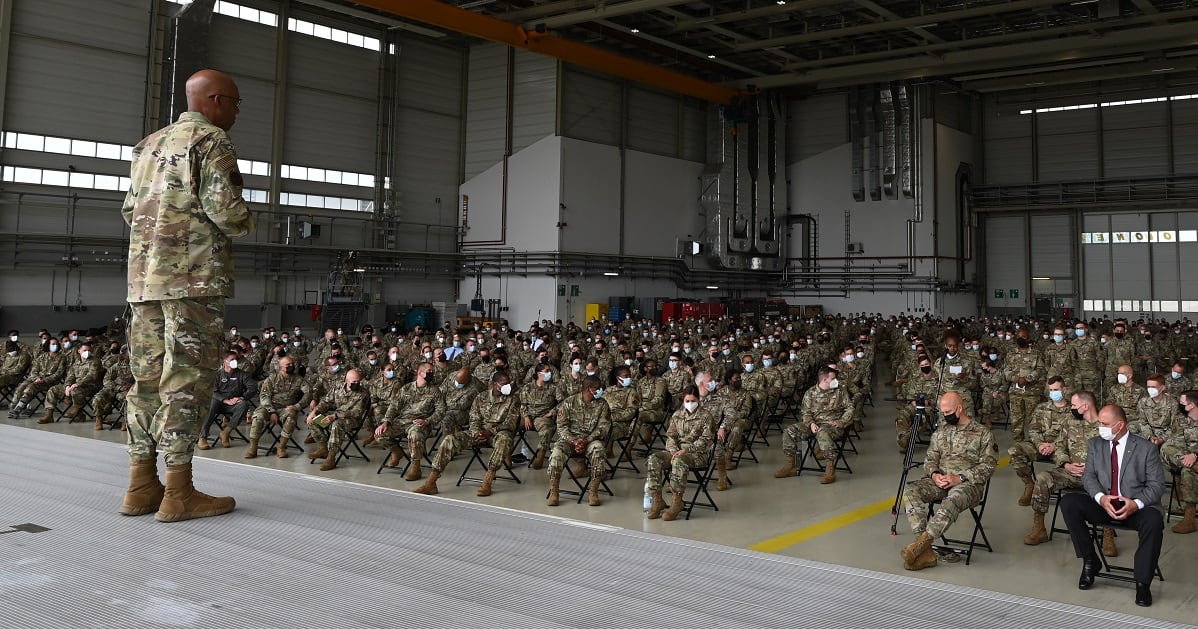Airmen and guardians may now have a better shot at becoming a midlevel officer if graduate school is on their resume.
The Department of the Air Force announced Dec. 30 that it will consider advanced degrees when deciding whether airmen and guardians are qualified for promotion to major (O-4) or lieutenant colonel (O-5). The new policy took effect Sunday.
The change aims to encourage officers to pursue lifelong learning and to bolster institutional knowledge for future wars.
RELATED
“To compete with China, Russia or other potential threats, the Air and Space Forces must incorporate new technology more rapidly and effectively than our competitors,” Air Force Secretary Frank Kendall said in a release. “We must also have a deep understanding of the history, motivations, doctrine and thought processes of our potential adversaries.”
Promotion boards will value an officer’s operational and academic expertise, as well as their job experience and performance, the Air Force said in a release.
“Advanced academic degrees will be considered but will not be a requirement for, or a guarantor of, promotion,” the service said.
Officials who sit on promotion boards already look at the advanced degrees of airmen and guardians who are eligible to become colonels and above. The practice was discontinued for prospective majors and lieutenant colonels in 2014.
RELATED

About eight in 10 Air Force field grade officers — majors, lieutenant colonels and colonels — currently hold an advanced or professional degree, according to the Air Force Personnel Center. That includes 66% with a master’s degree, 13% with a professional degree (such as medicine or law), and 5% with a doctorate.
Airmen opposed to the change erupted on social media over New Year’s Eve weekend.
They argue the policy will force officers into graduate programs they don’t want; give an unfair advantage to more educated airmen, regardless of whether their diplomas are relevant or whether they are better leaders; and send disillusioned military pilots running for commercial airlines.
Air Force Secretary Frank Kendall tried to dispel those notions.
“Officers should not pursue an advanced degree simply to impress a promotion board or to check a perceived box,” Kendall said. “Advanced degrees should be chosen to meet personal and professional goals, with an appreciation of the value the specific degree has to the Department of the Air Force.”
RELATED

The shift could also lead to less diversity at higher levels.
According to the Department of Education’s most recent public data, about 65% of Americans who earned master’s degrees in the 2018-2019 school year were white. That held true for the portion of Americans who earned doctoral degrees as well.
That percentage plummeted among racial and ethnic minorities, however.
During the same school year, around 13% of master’s degree recipients were Black, 11% were Hispanic and 7.5% were Asian or Pacific Islanders, federal statistics show.
Among those who earned doctorates, about 9% were Black, 9% were Hispanic, and 13% were Asian or Pacific Islanders.
Still, Kendall cautioned that someone’s competence isn’t defined solely by the time they spend in a classroom.
“Expertise and associated critical thinking skills are developed from many sources and experiences, including advanced academic degree programs,” he said.
Rachel Cohen is the editor of Air Force Times. She joined the publication as its senior reporter in March 2021. Her work has appeared in the Washington Post, the Frederick News-Post (Md.), Air and Space Forces Magazine, Inside Defense, Inside Health Policy and elsewhere.





